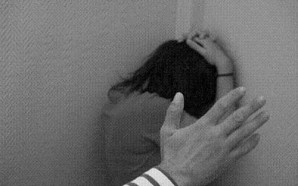
Written by Rami Alhames
 It’s a startling statistic: One-fifth of Brazilian women are likely to suffer from domestic violence. That includes physical, psychological, and emotional abuse as well as marital rape. The aggressor is usually a boyfriend, husband, ex-partner, or male family member.
It’s a startling statistic: One-fifth of Brazilian women are likely to suffer from domestic violence. That includes physical, psychological, and emotional abuse as well as marital rape. The aggressor is usually a boyfriend, husband, ex-partner, or male family member.
In light of the problem, an online campaign launched earlier this year is challenging “real men” to show their solidarity against domestic violence.
The World Bank with the participation of the Maria da Penha Fernandes Institute [1] [pt] among other Brazilian women’s right movements [2] and societies launched a campaign [3] [pt] in March 2013 called “Real men don’t beat women” (Homem De Verdade Não Bate Em Mulher).
Brazilian athletes, actors, and society members joined the action on the World Bank Brasil’s Facebook page [4] to inspire Brazilians to speak out against domestic violence in Brazil. They joined on Facebook [5], Twitter [6] and Instagram [7] posting self-pics holding a sign featuring the campaign slogan under the hashtag #souhomemdeverdade, which in Portuguese means “I‘m a real man.”
“Every four minutes a woman is killed by domestic violence in Brazil”, according to the figure presented [9] in a state meeting of the public prosecutor’s office in Rio Grande do Sul in March 2013:
Os números assustam. (…) Esta é a principal causa da morte de mulheres entre 16 a 44 anos. Desses crimes, 99% são causados por ciúme e possessividade; 77% dos conflitos ocorrem depois da separação.
The numbers are frightening. (…) This is the main cause of death for women between 16 and 44 years. Of these crimes, 99 percent are caused by jealousy and possessiveness; 77 percent of conflicts occur after a break-up.
The Map of Violence 2012 (Mapa da Violência de 2012 [11]) [pt, PDF] reports that 91,930 women were murdered in Brazil between 1980 and 2010. On average, there were 4.5 women killed for every 100,000 women, with Espírito Santo, Alagoas, and Paraná states having the highest rates.
A special edition of the report dedicated to feminicide in Brazil [12] [pt, PDF], concludes that “68.8 percent of the murders of women take place in the domestic sphere” and in the 20 to 49 age group, “65 percent of the assaults are committed by the partner or ex”. The report also adds:
entre os 84 países do mundo que conseguimos dados a partir do sistema de estatísticas da OMS o Brasil, com sua taxa de 4,4 homicídios para cada 100 mil mulheres ocupa a 7ª colocação, como um dos países de elevados níveis de feminicídio
among the 84 countries from which we got data from the [World Health Organization’s] statistics system, Brazil with its rate of 4.4 homicides for every 100,000 women, occupies the 7th place as one of the countries with higher levels of feminicide.
According to Wikigender [13]:
The Map of Violence 2012 (Mapa da Violência de 2012 [11]) [pt, PDF] reports that 91,930 women were murdered in Brazil between 1980 and 2010. On average, there were 4.5 women killed for every 100,000 women, with Espírito Santo, Alagoas, and Paraná states having the highest rates.
A special edition of the report dedicated to feminicide in Brazil [12] [pt, PDF], concludes that “68.8 percent of the murders of women take place in the domestic sphere” and in the 20 to 49 age group, “65 percent of the assaults are committed by the partner or ex”. The report also adds:
entre os 84 países do mundo que conseguimos dados a partir do sistema de estatísticas da OMS o Brasil, com sua taxa de 4,4 homicídios para cada 100 mil mulheres ocupa a 7ª colocação, como um dos países de elevados níveis de feminicídio
among the 84 countries from which we got data from the [World Health Organization’s] statistics system, Brazil with its rate of 4.4 homicides for every 100,000 women, occupies the 7th place as one of the countries with higher levels of feminicide.
According to Wikigender [13]:
The World Bank, together with Brazil’s National Congress and Camara TV, also promoted a Short Documentary Contest [18] on the Maria da Penha Law, which awarded five short stories illustrating the lives of:
1st place: A group of women working against gender violence in Sao Paulo ]
2nd place: In a group of craftswomen Carmen found the strength to leave her abusive partner. ]
3rd place: Lucilia, an indigenous woman, who repeatedly tried to file a report against her ex-partner, but the police never investigated ]
4th place: Silvia, an activist for women’s rights, murdered by her son in law, who used to beat her daughter ]
5th place: Veronica, Carmen, and Sara, who managed to free themselves from abusive husbands ]
As human rights activist Natasha Baker wrote [24] on her blog after finding out about the work and life of Maria da Penha, “One of the greatest benefits of networking is discovering other organizations, companies and movements that are bringing hope into this world”. For those who want to denounce a domestic violence or any gender-based violence in Brazil, dial 180:
Homem que bate em mulher não bate bem da cabeça. Denuncie ligando pra 180: http://t.co/PbHRpl4913 [25] #souhomemdeverdade [26] #sevalorize [27]
— Dicas Nova (@DicasNova) May 18, 2013 [28]
Men who beat women aren’t right in the head. Report it by calling 180
Article printed from Global Voices: http://globalvoicesonline.org
URL to article: http://globalvoicesonline.org/2013/07/30/brazil-real-men-dont-beat-women/
